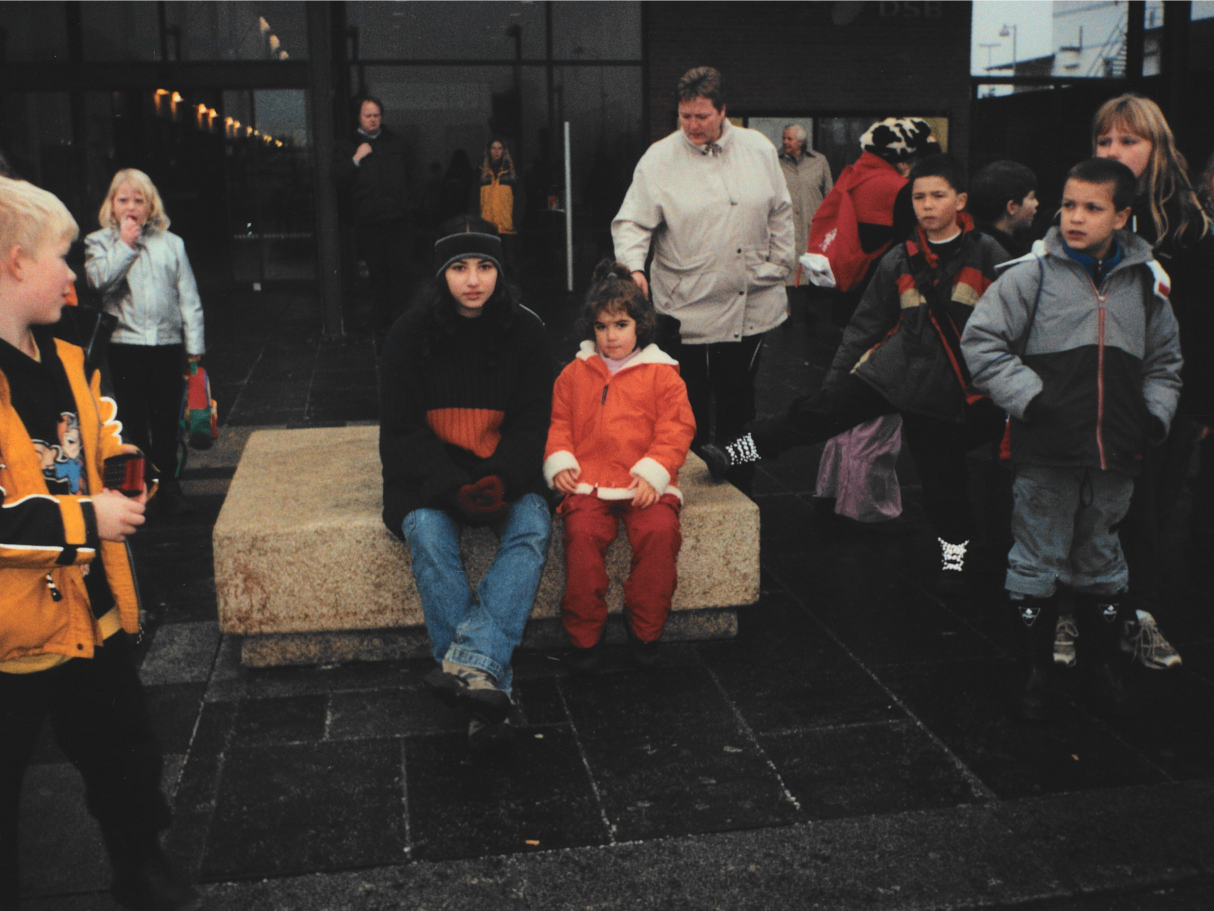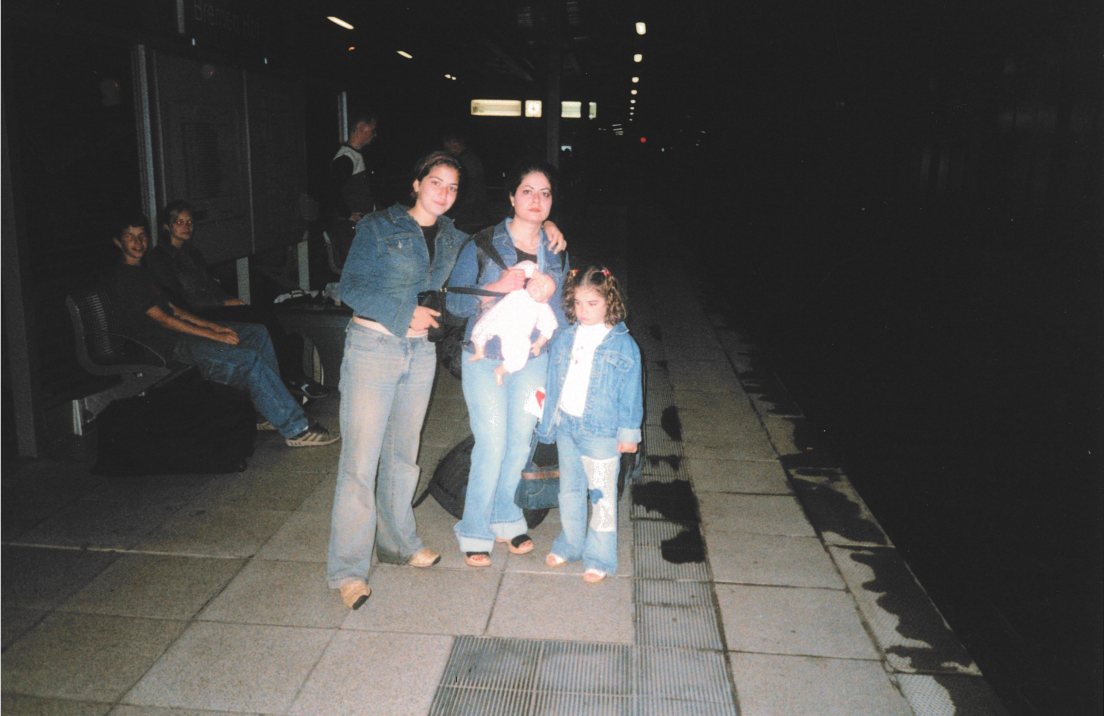My family and I became refugees after fleeing Iran decades ago – but the feeling of being invisible has never left me
The memory of what it feels like to cry out for help only for your voice to disappear has stayed with me for years. That’s why I’ve dedicated my life to amplifying the voices of people who don’t get to tell their stories

As a reporter and documentary-maker who reports for the BBC World Service and other broadcasters, I spend a lot of time in airports and train stations. I’m sitting writing this in one right now. However, every time I approach passport control, a sense of uneasiness, and a vague sense of guilt, builds in me. It is difficult to explain why, but it is important that I try and do so.
First, I have to tell you the story of a little girl.
Iran, 2000. She wakes up one morning in her bedroom, the walls covered in Spice Girls and Backstreet Boys posters. It was a couple of months after her 12th birthday, and she should have been going into school as normal, but on that morning, her world was to be turned upside down. Along with her mother and 4-year-old sister, she was taken to Tehran airport.
From the plane she watched the city, her birthplace, get smaller and smaller until it disappeared forever beneath the clouds.
Of course, this 12-year-old girl was me.
The plane landed in Denmark, the destination chosen by the smuggler who had issued our fake visas. We were put in a car, and as I looked out at the unfamiliar landscape, I was fixated by the sky; it comforted me that at least it was the same colour as it had always been. We were dropped off at an enclosure with tall brick walls covered with barbed wire. I looked at the other residents thinking they were zombies, staring at us with dead eyes. “Surely this is a prison” I recall thinking, but I was wrong. This was our first home in Denmark.
Big canteens, confusion, food sanctions, fear, medical checks, clothes donations, my mum, crying. At some point I was put on a bus, leaving the temporary refugee camp for a permanent one.
I was scared of every single person there. The Iraqi guy with the huge scar from his forehead to his chin, the Syrian with one eye, the Somali woman whose face was covered under a burka, the bruised eastern European lady who said she’d run away from her abusive husband, the young Palestinian who claimed to be a former terrorist, the big fat Turkish man with a huge moustache who never seemed to go anywhere without his shisha. All of them, every single one, terrified me.
Whenever the camp’s bus would take us on our fortnightly shopping to the nearest supermarket about a two-hour drive away, the locals would look at us the way I had looked at the residents on my first day at the camp; we scared them. I felt myself a burden, unwanted. And I was beginning to accept it, this new identity. My identity as a refugee.
Then Jeff showed up. Jeff was an old Danish man who started coming in to visit us with a camera. He didn’t understand me and I didn’t I understand him – but he saw us. He wanted to make a film featuring us refugee kids, and hearing this was a turning point for me. A thought lodged itself in my mind that I didn’t have to be invisible. I’d go to bed dreaming about being on TV one day and showing the world what I’ve been through, of speaking and being heard.

Initially, it was logistics, boredom, and limited space which forced the other refugees and me to sit down and actually listen to one another. Our neighbours were from diverse backgrounds, ages, races, colours, and beliefs, and when you live in a close-knit community, your survival depends on communication. With all of us desperate to find a way to communicate, we developed a new language we called “Campie” – a mixture of Arabic, Farsi, Danish, English – and drawings.
When I started listening to the other asylum seeker residents, I began to find myself mesmerised by their stories. We may have been put away by the authorities, homeless, a burden, unwanted and invisible to the society we lived in, but we saw and heard each other. Telling our stories made us feel like we mattered. I made detailed notes in my diary during these years in Denmark, so that one day I could tell the world about it. Those who had once scared me became my family; our bond made the hardship of our lives easier to bear.
When I found out that the man with the huge scar on his face had been murdered, I cried harder than I had when I learnt my granddad in Tehran had passed away.
But this new family, this new world, wasn’t to last. Every morning with my mum I’d go to the camp’s office to look for our names on the list announcing whose asylum application had been either accepted or rejected. One morning, our time was up. We hadn’t been granted permission to stay and had to pack our bags.
We had to start all over again. From scratch. We were exhausted.
The next few months were hard. Hiding from border police, being smuggled from border to border, sleeping rough on the pavements of Europe, shaking from the cold, trying not to think about food because we hadn’t eaten for so long. We had learnt by this point to live life one day at a time, and our experience at the refugee camp had taught us to make the most of the little we did have.
After a few months like this, I was once again on a plane, bound for the UK. There, we were eventually granted citizenship. We were in a home that was ours and a country we felt we belonged in.
This wasn’t the end of my story of course. My mother, sister and I lived on the poverty line around different cities in the UK, trying to learn English, and the emotional trauma of what we’d been through weighing heavy on us all. But the determination and self-reliance that had grown in me from my childhood experiences have built me into the journalist I am now.

I recently made Me, The Refugee for the BBC World Service, telling my own story, for the first time. It was the most difficult thing I’ve ever made, even after all these years, even after reporting from some of the world’s most hostile environments like Afghanistan, Mauritania, and Syria. But why am I telling you all this now?
Sipping on an iced latte, I’m in a coffee shop in Copenhagen airport writing this. It is the same airport I arrived at when I first left Iran. I landed here, a confused, lost and terrified child who felt invisible. I now travel the world trying my best to amplify people’s voices, be it telling the stories of mothers in US jails or those living in Afghanistan’s only psychiatric unit. That I do this is all due to the power I found as a child when one man came to my refugee camp and listened to me, and I, in turn, learnt to listen to others.
That’s why I want to tell you my story, and I want you to listen, both for the voiceless little girl in the remote refugee camp, and to show the world why listening to people with different stories to us, and being given a platform to tell them, is so important to creating a compassionate world.
The memory of what it feels like to be invisible, of feeling the need to cry out for help only for your voice to disappear, never leaves you. That’s why I still get nervous in airports. But now I know that my voice matters, and that makes all the difference.
You can download the podcast of Me, The Refugee from the BBC World Service on BBC Sounds and on bbc.co.uk/worldservice
Join our commenting forum
Join thought-provoking conversations, follow other Independent readers and see their replies
Comments
Bookmark popover
Removed from bookmarks